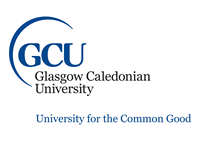Dr E Smith
No more applications being accepted
Funded PhD Project (Students Worldwide)
About the Project
Applications are invited for a full-time PhD research studentship at Glasgow Caledonian University jointly within the Schools of Engineering and the Built Environment and Health and Life Sciences. The studentship of £19,100 per year is for a period of three years, subject to satisfactory progress. The studentship covers the payment of tuition fees (currently £4,300 for UK/EU students or £15,000 for international students) plus an annual stipend of £14,800 for UK/EU students or an annual scholarship of £4,100 for international students.
Project Summary
Background
Foot ulceration and lower limb amputation are devastating complications associated with diabetes. Pathways to ulceration involve tissue damage in the presence of neuropathy (the loss of protective sensation), altered gait biomechanics and poor blood supply. The complexity of the foot in terms of anatomy (structure) and function (biomechanics) make in vivo measurements of the full physiological range of stresses and strains challenging. Computational modelling including musculoskeletal modelling and finite element analysis have helped researchers gain a better understanding of the biomechanics of the healthy and diabetic foot. This includes the development of modelling techniques, investigation of pathomechanics and the development and testing of off-loading interventions including footwear and orthoses.
In collaboration with the University of Maastricht Medical Centre, Glasgow Caledonian University developed an advanced musculoskeletal model of the foot and ankle. We aim to further develop and refine the model and to apply it in the study of diabetic foot disease. The opportunity exists to build models using patient-specific datasets comprising MRI/CT images, 3D motion capture, muscle function data (EMG) and 3D foot shape. Options exist to integrate finite element analysis of both the foot and off-loading interventions including custom orthoses and footwear and to conduct validation experiments.
Aims
This PhD will focus on the development and application of the Glasgow-Maastricht Musculoskeletal Foot Model (in the AnyBody Modeling System) in diabetic foot disease. The scope of the project is flexible including, but not limited to, model development; modelling biomechanical disease processes leading to pathology; and design and development of custom off-loading technologies such as foot orthoses and footwear. The aim is to include an exchange with the research group at the Maastricht University Medical Centre.
Research Supervisors
Candidates are encouraged to contact the following researchers for further details:
• Dr Esther Smith ([Email Address Removed] / http://www.gcu.ac.uk/ebe/staff/smithesther/)
• Prof Jim Woodburn ([Email Address Removed] / http://www.gcu.ac.uk/hls/staff/profjimwoodburn/)
• Dr Kenneth Meijer ([Email Address Removed])
Mode(s) of Study
The studentship is available as a 3 years full-time PhD.
Eligibility
Applicants will normally hold a UK honours degree 2:1 (or equivalent); or a Masters degree in a subject relevant to the research project. Equivalent professional qualifications and any appropriate research experience may be considered. A minimum English language level of IELTS score of 6.5 (or equivalent) with no element below 6.0 is required. Some research disciplines may require higher levels.
Specific requirements of the project:
Experience in working with computational models (musculoskeletal and or finite element modelling) is essential. Knowledge and experience of 3D gait analysis and multi-modal medical imaging (CT/MRI) are essential. Knowledge of diabetic foot disease and experience of working with patients with diabetes is desirable but not essential.
How to Apply
Candidates are encouraged to contact the research supervisor(s) for the project before applying. Applicants should download and complete the GCU Research Application Form, available from: http://www.gcu.ac.uk/phdopportunities stating the Project Title and Reference Number (listed above).
The completed GCU Research Application form should be sent with copies of academic qualifications (including IELTS if required), 2 references and any other relevant documentation to: [Email Address Removed]. Applicants shortlisted for a PhD studentship will be contacted for an interview.
The closing date for applications is 4th September 2017

 Continue with Facebook
Continue with Facebook

